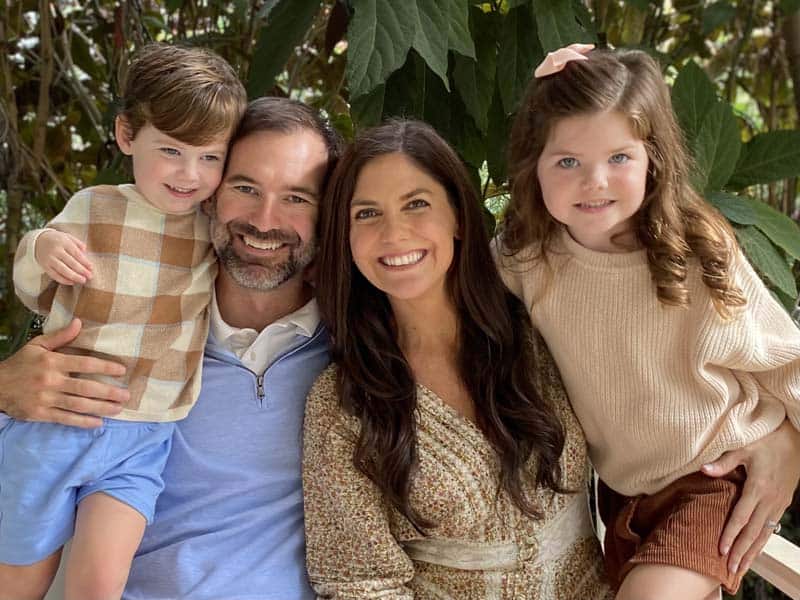Self-Care & Parenting: Put Your Oxygen Mask on First
Self-care, integral to longevity, has implications for parents’ and children’s wellbeing. Dr. Erica Clark, licensed clinical psychologist, is a Tampa native providing therapy focused on helping clients navigate things from life transitions to parenting challenges. Married, mother of two, Dr. Clark untangles why raising humans with strong senses of self is underpinned by parents’ self-care.
Defining Self-Care
The essence of self-care is engaging in acts that fill you up. Highly individual, self-care can be active, restful, solitary or communal. Have a wide variety of self-care options and focus on how they leave you
Nature lover? Self-care might mean taking kids’ playtime outside so that it feels more like “me time.” Consider self-care acts that simultaneously hit many points. For example, early morning runs or walks with friends mean social time, energy-boosting physical activity and time outside before kids wake up.
For parents, finding ways to fit in self-care often involves creativity and multitasking.
Stop Selfless Parenting
Putting children before self can be detrimental. Consider the oxygen mask analogy. Caring for oneself first increases ability and capacity for helping others. Selfless parents are left feeling depleted.
When kids mature and decreasingly need parents, selfless parents may lack identity and purpose, saddling grown children with pressure for providing their happiness.
Children are always watching. By engaging in self-care, parents are able to model appropriate ways to self-soothe, boost mood and enhance well-being.
Teach kids that everyone’s responsible for their own feelings of contentment—that overseeing one’s well-being is empowering.
Put on your oxygen mask. Go meet a friend. You and your family will reap the benefits.
Social Media & Self-Care
Be intentional in noticing your emotions. How do you feel when scrolling (stressed)? Immediately after logging off (judged)? Be intentional with your time; curate who you follow because social media feeds mindlessness.
It’s a double-edged sword. While finding parenting resources and seeing friends’ activities is great, spiraling into comparisons based on highlight reels isn’t helpful, so be mindful of social media’s impact.
Barriers to Self-Care
“Shoulds” are obstructive. When we internalize things into “I should have done,” we maintain a guilt-and-shame downward spiral. Try, “I wish I had done this differently. How can I prevent that from happening again?” Important semantics. When externalized, “shoulds” place resentment on loved ones. Rather than “they should have known I needed xyz,” try, “I wish they’d known what I needed. What can I do to rectify this situation?”
When kids’ commentary on self-care induces guilt, push against it by (a) connecting with kids emotionally and (b) sharing how keeping our own buckets full allows us to be the best version of ourselves.
There’s a positive shift in understanding individuals’ needs for self-care; kids see and feel the benefits of self-caring parents caring.
Reconceptualize Self-Care
Self-care does not need to be fancy or time-consuming. Create a self-care toolkit and encourage children to do the same. Cultivate kids’ mastery over themselves by articulating how your own toolkit items help during stressful moments. Toolkits can include things such as playlists, scented lotion or a picture of a favorite place/memory. Explain how the “feel good playlist” soothes, why the scent relaxes, and what positive memories are associated with the photo. When kids witness parents regulating their own emotions, kids learn to curate and utilize their own toolkits. They also learn that regulating others’ emotions isn’t their responsibility. Self-care strengthens self-empowerment.
Capitalize on kids’ interest in being little adults by showing them what healthy adults look like.
Seasons of Self-Care & Parenting
Seasonally, consider what’s feasible. Self-care looks different during infancy and toddlerhood; when there’s one child vs. multiple. Seasons can change monthly or last years. Uncover and honor each season’s uniqueness. Release the idea you aren’t doing self-care “right.”
Find self-care strategies that fit you as opposed to mirroring others’ routines. If home is loud with toddlers, self-care may need a focus on quiet. Conversely, newborns’ parents may need adult conversation. For some, monthly getaways are attainable. Family conversations about self-care acts that are doable and necessary are worthwhile.
Demystify self-care for your kids. But, first, make sure your oxygen mask is secure.
Originally published in April 2023 issue of Tampa Bay Parenting Magazine.


